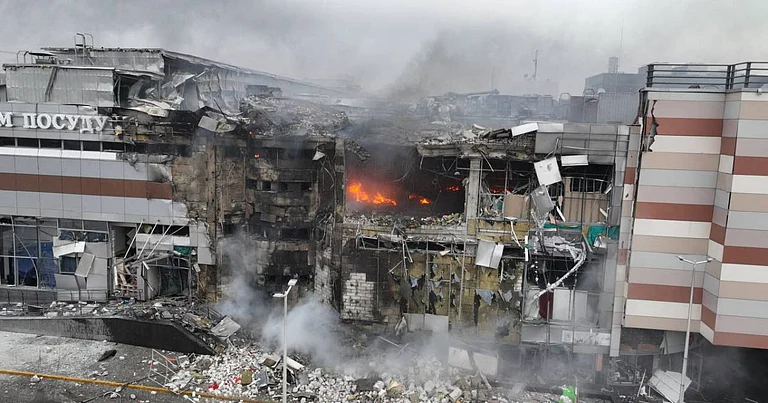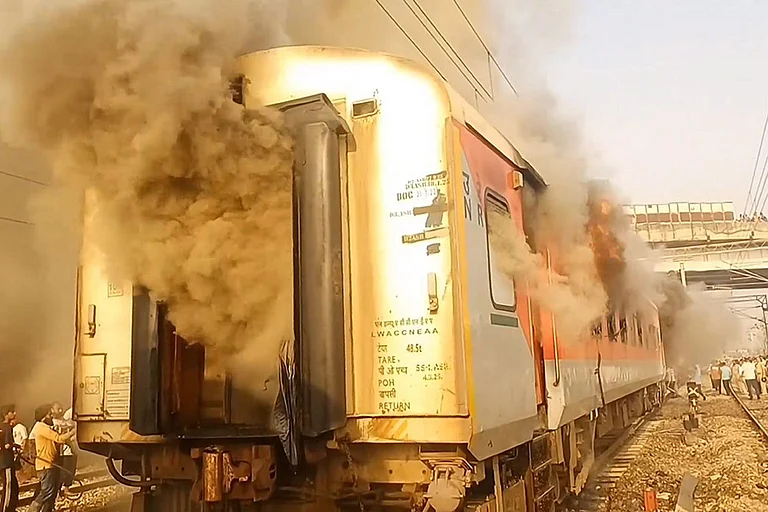"I will be back home at any cost... Do not worry,” 31-year-old Subhojit Mali told his daughter over a video call before boarding the Kanchanjunga Express when he had promised her to get a birthday cake and take the entire family - his elderly parents, wife and two children - out to celebrate. Little did she know that her father wouldn’t come back home that night.
Mali was one of 850 passengers aboard Sealdah-bound Kanchanjunga Express near Rangapani, 30 km from the New Jalpaiguri station in Siliguri on Monday when a goods train rammed into it from behind, killing ten passengers and injuring over 40 others.
The accident triggered horrific memories of the triple train collision in Odisha’s Balasore last year that left 296 dead and over 1,200 injured in what was India’s worst rail accident in over two decades. Opposition parties soon upped the ante against Railways Minister Ashwini Vaishnaw, who was re-elected to the position, and demanded his resignation.
While initial reports suggested that the accident was caused by human error, the investigation by the Commissioner of Railways Safety is yet to ascertain complete results.
Are railway accidents happening too frequently?
India has witnessed several deadly train accidents over the last few years that have together claimed over at least 1,000 lives. Infamously, in one of the worst train disasters in the world, two trains carrying 2,500 people collided at the station of Gaisal, located on the Bihar-Bengal border and about 500 km from Kolkata, killing over 400 people in 1999. The then Railway Minister, Nitish Kumar, took moral responsibility for the accident and tendered his resignation.
While the number of railway accidents since then has come down, a recent report by the Comptroller and Auditor General (CAG) of India on accidents presented a sobering reality on safety of the Indian Railways. The report audited railway accidents between April 2017 and March 2021, and found that the major factor responsible for derailment was related to “maintenance of track” (171 cases), followed by “deviation of track parameters beyond permissible limits” (156 cases).
Further, the overall allotment of funds for track renewal works went down from Rs 9,607.65 crore (2018-19) to Rs 7,417 crore in 2019-20. The funds were not fully utilised, the audit report said.
The recent accident also brought to the fore debates on the delay in implementation of the much-touted Kavach or anti-collision system across the country’s rail network. Hours after the incident, Railway Board chairperson Jaya Varma Sinha said at a press conference that the implementation of the system in West Bengal and the Northeast is in the ‘planning stage’.
Responding to criticism, the ministry said Kavach is a very complex system involving six major subsystems. "The system was finally certified in 2019. Despite COVID challenges, work progressed, and now the railway as well as equipment manufacturers are geared up to take on large projects. At this point in time, work is progressing rapidly on 3,000 km routes. Design work for other routes is also progressing very fast," a senior official from the railway ministry, requesting anonymity, told PTI.
More than 12 million people ride 14,000 trains across India daily, travelling on a network of 64,000km. All eyes will now be on the new NDA government and whether they will address questions over safety of the Indian railways.



























